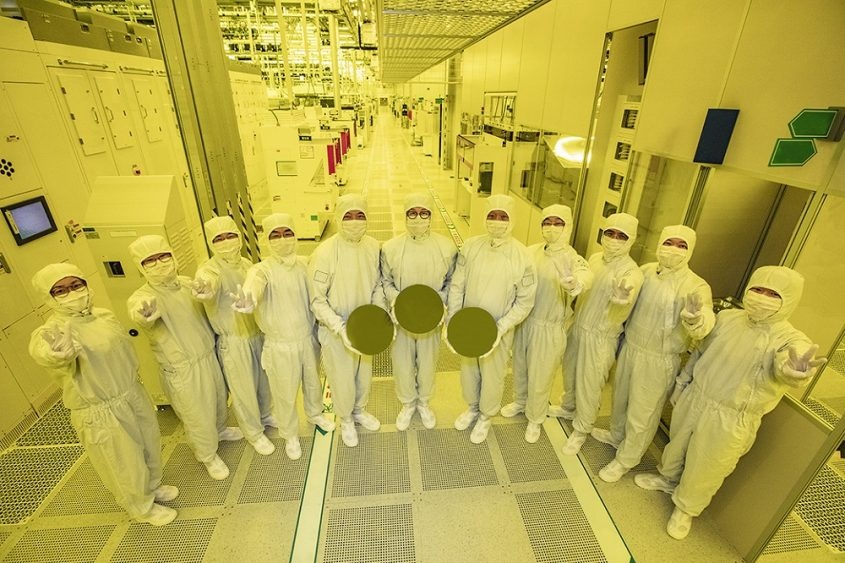Samsung marks its first shipment of cutting-edge 3nm chips
 |
The chips apply Gate-All-Around (GAA) technology. The second-generation 3nm process helps reduce power consumption by up to 50 per cent, improve performance by 30 per cent, and reduce the required area by 35 per cent in comparison with the existing process.
Samsung has surpassed its rival TSMC of Taiwan in the race to advance its chipmaking technology. As a result, Samsung is expected to secure more orders from customers who are seeking powerful chips that enable smaller, faster, and more efficient technology products, as reported by newswire Yonhap.
According to Yonhap, TSMC will begin mass production of 3nm chips in the second half of the year. Samsung and TSMC have been in fierce competition by bringing the most advanced and efficient chips to the mass market.
"Samsung opened a new chapter in the foundry business today, with the start of mass production of 3nm chips," Kyung Kye-hyun, CEO of Samsung's device solutions division, which supervises the chip business, said at the ceremony at its Hwaseong production lines.
"The development of the GAA technology earlier than expected as an alternative to the previous process was an innovative breakthrough," Kyung added.
Samsung claimed that it began developing the GAA technology in the early 2000s and was successful in implementing it on the 3nm node in 2017.
High-performance computing is the first use case of the 3nm GAA technology. Samsung plans to expand the application into other product categories.
Since the third quarter of 2021, Samsung Electronics has been providing proven design infrastructure through extensive preparation with Samsung Advanced Foundry Ecosystem partners including Ansys, Cadence, Siemens, and Synopsys, to help customers perfect their products in a reduced period of time.
What the stars mean:
★ Poor ★ ★ Promising ★★★ Good ★★★★ Very good ★★★★★ Exceptional
Related Contents
Latest News
More News
- Internal strengths attest to commitment to progress (February 19, 2026 | 20:13)
- Vietnam, New Zealand seek level-up in ties (February 19, 2026 | 18:06)
- Untapped potential in relations with Indonesia (February 19, 2026 | 17:56)
- German strengths match Vietnamese aspirations (February 19, 2026 | 17:40)
- Kim Long Motor and AOJ Suzhou enter strategic partnership (February 16, 2026 | 13:27)
- Haiphong welcomes long-term Euro investment (February 16, 2026 | 11:31)
- VIFC in Ho Chi Minh City officially launches (February 12, 2026 | 09:00)
- Norfund invests $4 million in Vietnam plastics recycling (February 11, 2026 | 11:51)
- Marico buys 75 per cent of Vietnam skincare startup Skinetiq (February 10, 2026 | 14:44)
- SCIC general director meets with Oman Investment Authority (February 10, 2026 | 14:14)

 Tag:
Tag:



















 Mobile Version
Mobile Version